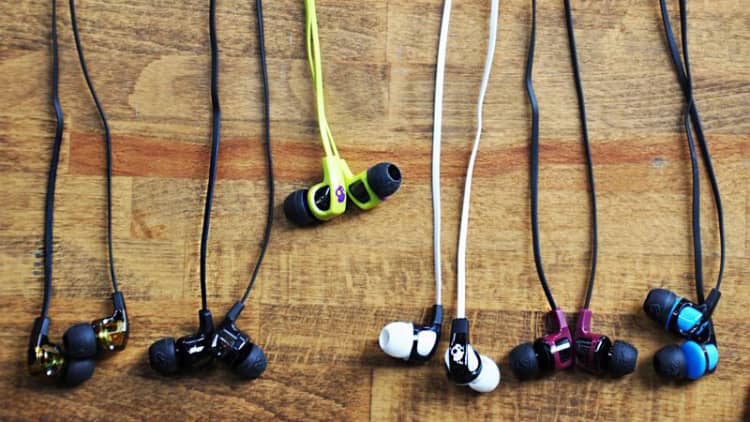
Headphone-maker Skullcandy has had a big year, and the company's CEO has a plan to keep the good times rolling through the holidays and beyond.
Skullcandy has stiff competition in the headphone space, going toe to toe with pricey brand names like Beats Electronics —recently purchased by Apple and backed by hip-hop icon Dr. Dre—and SMS Audio, owned by rap impresario Curtis "50 Cent" Jackson. Beats and SMS cater to the higher end of the headphone market, where a typical unit sells for more than $100 each, but Skullcandy's audio hardware is comparatively cheaper.
Carving out that niche has helped the company's stock begin a slow climb back to its 2011 initial public offering price of $20: over the last year, its shares have surged by 45 percent. Meanwhile, Skullcandy has become the number one brand for units sold and the fourth-ranked brand in terms of revenue, according to data from research firm NPD, cited by the company.
In a recent interview with CNBC "Closing Bell", Skullcandy CEO Hoby Darling said he expects that momentum to carry into the holiday shopping season.
"You look at consumer electronics, and especially branded consumer electronics, and that's a great category to be in when you're inspiring the consumer and exciting them," he said.
Darling chalked up the company's performance to its ability to pair technological innovation with a message centered around art, music, and action sports.
Holiday momentum
Rather than selling high-priced hardware, Skullcandy looks to differentiate itself by appealing to the young, hip and "constantly connected coastal influencer," according to Michelle Whitehead, the company's director of brand and sports marketing.
"This is consistent with and ties back to our heritage as the original performance and lifestyle audio brand," Whitehead told CNBC in an email.
"We connect with our `muse' and identify with our consumer through mindset and ideology as opposed to specific activity and end use," she added. "We feel like the mindset and attitude are more important than whether the consumer is a skateboarder, artist, musician or team sports athlete."
Whatever the inspiration, Wall Street investors certainly like what they see in Skullcandy's numbers. Its earnings have beaten Wall Street's estimates in the first three quarters of 2014. On Friday, its shares traded just below $9.
The fourth quarter could be a breakout period for Skullcandy, thanks to a combination of product launches, marketing, and distribution, according to research from D.A. Davidson. The report notes a number of the company's headphone lines were top industry sellers in the third quarter, giving Skullcandy momentum heading into the holiday shopping season.
The company is also benefiting from its push into Wal-Mart stores, as it expands beyond its focus on stocking specialty retailers like Zumiez and Tilly's. Skullcandy has entered about 2,000 Wal-Mart locations and selling trends have exceeded expectations, D.A. Davidson reported.
Darling told CNBC the company will remain focused on two "massive" categories: music and gaming.
The company acquired video game headset specialist Astro in 2011. The division has 90-percent market share for products above $200 in the category, he said.
Read More10 must-have video games this holiday season
Asked if Skullcandy is the next logical buyout target after Apple's $3 billion acquisition of Beats Electronics, Darling said, "We think 100 percent as an independent company and we just keep driving to be great on that."


